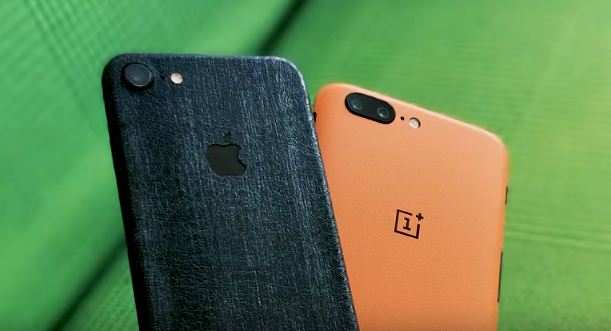Between Android and iOS, which is the Better Mobile Operating System for Smartphones? This is a question that has plagued every smartphone buyer, especially first timers. The two are the most popular mobile operating systems and largely dictate smartphone sales.

According to IDC, Android and iOS accounted for 99.7 percent of all new smartphones shipped in 2017.
Android is owned by Google and has been adopted by various device manufacturers. On the other hand, iOS is owned by Apple and is exclusively found on the company’s iPhones.
Here’s a quick comparison of key aspects between both operating systems.
Cost
It is a no brainer that Apple is the dearest of the two operating systems, thanks to its exclusivity nature.
The latest phone running on iOS, the iPhone X, will set you back about Kshs. 130,000.
On the other hand, Android works in collaboration with numerous hardware companies, hence giving consumers a wider variety in terms of cost.
Apple’s peripherals and/or accessories also cost a lot more than their Android counterparts.
In some cases, you will fork out cash for accessories than come free with Android. Case in point are fast-charge adapters.
Battery Life
Battery life is a huge factor for consumers since no one likes the idea of having to look for a socket to juice up their phone every so often.
While both operating systems have features such as battery saving modes to prolong battery life, Android shows you how much battery life you have left.
The wide variety of devices running Android also afford you the opportunity to choose a smartphone with a bigger battery.
Apps and App Store
There is little difference here since both devices have over 2 million apps on their respective stores.
However, Apple is stricter with its iOS App Store, which is also more organized than Android’s Play Store.
On the other hand, Android allows side-loading apps via the ‘unknown sources’ option.
This is both good and bad in the sense that it allows customization while raising the risk of malware infection.
iOS does not have the option for side-loading apps.
Customization
Simply put, two different users with the same model of a smartphone, running on the same version of Android will essentially have two distinct devices right from the homescreen to notification tones.
This is thanks to Android’s wide range of customization options. You can change launchers, themes and widgets to have your phone look and behave as you fancy.
In contrast, iOS has most options locked down and trying to tailor your iPhone for personalized experience will yield little results.
Security
The tight control Apple has on apps and other aspects of its operating system gives the general feeling that iOS is more secure than Android.
The ease of rooting an Android phone or unlocking the bootloader as compared to the hassle of jailbreaking cement the perception that iOS is more secure.
While respective Android manufacturers go an extra mile to have their own security features. It does not discount the fact that Android’s vast customizability poses a security risk.
Verdict
It is difficult to clearly point out a winner because different people have different preferences.
A security buff will opt for the iPhone while a someone who likes to tinker around and customize things will love Android.
So the verdict solely depends on what you prioritise.
[irp]
Do not miss all our tech updates on Android and iOS


Leave a Reply